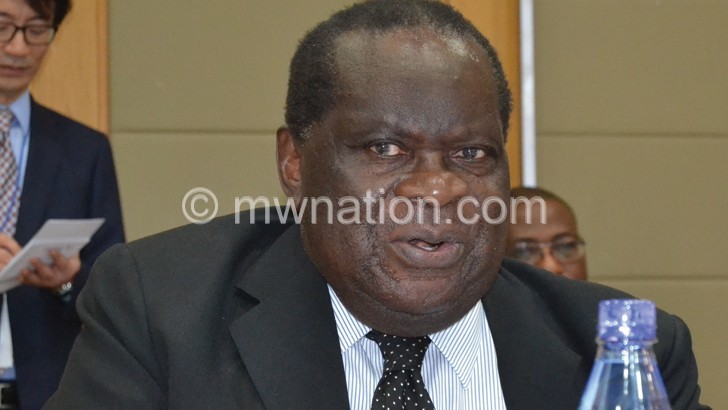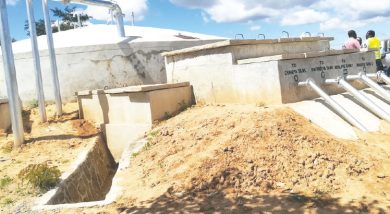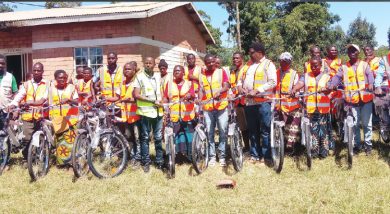Tonse clings to CDF, DDF booty
The Tonse Alliance administration has disregarded a proposal for a new funding model meant to replace Constituency Development Fund (CDF) and District Development Fund (DDF), which have been subjects of abuse and mismanagement.
Former minister of finance Goodall Gondwe said in an interview on Tuesday that Treasury initiated the new model in 2018 to curb abuse of public funds meant for development projects after a special audit report issued by the Central Internal Audit Unit in June 2017 showed that 20 members of Parliament (MPs) mismanaged about K80 million of CDF in 2014/15 and 2015/16 financial years.
In 2018, Gondwe announced in Parliament that 20 lawmakers mismanaged K80 million, which was part of K3 billion CDF for the fiscal years 2014/15 and 2015/16, and risked arrest and prosecution. He did not name the suspects and nothing has happened to them.
The former minister feared that failure to implement the new funding model is likely to have resulted in continued abuse, misallocation of the funds and mediocre projects, a view shared by governance experts who described the two funds now with combined funding of K24 billion as ‘campaign tools’.
According to an audit report dated June 15 2017, the 20 MPs were from 14 of the 28 councils, namely Karonga, Chitipa, Nkhotakota, M’mbelwa, Lilongwe, Dowa, Mangochi, Ntcheu, Chiradzulu, Machinga, Lilongwe City, Nsanje, Chikwawa and Neno.
The new model aimed to replace CDF–which was increased to K100 million for each constituency in the 2021/22 financial year and DDF now at K4.7 billion—by channelling funding for development projects at grass roots level.

But the current administration says it has no information on the proposal, and will maintain CDF and DDF because there are new guidelines that have reduced cases of abuse and mismanagement.
Minister of Finance and Economic Affairs Sosten Gwengwe said in a written response they would continue with both DDF and CDF as vehicles to accelerate development at the grass roots level.
He said: “Thoughts to abolish the two came because these funds did not have clear guidelines as they do now. Incidences of abuse of these funds have significantly reduced.”
In the 2023/2024 National Budget which starts next week Treasury has allocated K19.3 billion to CDF and K4.7 billion to DDF.
On his part, Minister of Local Government, Unity and Culture Richard Chimwendo Banda said he did not have information on the proposal but the Tonse Alliance administration did not replace the funding method as “we don’t find any problem with them”.
He further said: “Each funding has its own accountability measures. Again, all government funds are subjected to the Public Finance Management Act so there is no reason to change.”
Gondwe said when they initiated the process they expected the next government to fully implement the changes.
He said the National Planning Commission (NPC) had provided a platform where its members and government officials were brainstorming on the new funding model.
“We initiated it and thought the government that would be coming would put it into operation.”
The former Democratic Progressive Party finance minister said the decision to move away was activated by abuse of the funds and substandard projects across the country.
He said: “An audit report established that quite good money did not even produce projects. There were several questionable projects. So the idea was to empower communities to ensure that the funds were protected and properly used.”
Gondwe said some MPs deliberately ignored the fund’s guidelines and sourced quotations for projects instead of councils’ procurement teams, goods and materials were also bought from suppliers related to them and the legislators sometimes initiated projects without the involvement of relevant stakeholders.
Parliament created CDF in 2006 under the reign of Bingu wa Mutharika to spread development in the country evenly.
CDF seeks to provide MPs and their constituents with the opportunity to make choices and implement projects that maximise the people’s social and economic welfare.
However, MPs over the years have been at the pinnacle of administering CDF funds thereby creating divisive political havens that have excluded other stakeholders. The result has been that CDF is heavily politicised.
Currently, at least six legislators are under investigation while former Mzimba Hora MP Christopher Mzomera Ngwira and former Zomba Malosa legislator Anderson Undani were successfully prosecuted and convicted for abuse of CDF resources.
NPC public relations and communications manager Thom Khanje said while the commission had no information on the issue, it was an area that research can take it up as part of the enhanced public sector performance pillar of the just launched National Research Agenda.
In March last year, Parliament adopted new guidelines to improve management of CDF. In the guidelines, there is emphasis on strengthening procurement procedures to check on malpractices associated with CDF such as bloating prices and awarding of contracts without following procedures.
However, the new guidelines are already facing resistance from local councils and other stakeholders who feel they defeat the spirit of decentralisation.
The concerned stakeholders feel the new guidelines give the legislators more control on CDF as their release from the council can only take place when an MP requests them.
Governance and accountability commentator Boniface Chibwana said it would be hard to replace CDF because the lawmakers have a big stake in the management of the funds.
“Politics plays a very big role. That is why at times the guidelines are ignored and CDF is primarily used for MPs’ visibility and show that they are doing something and convince constituents to reelect them,” said Chibwana, who is national coordinator for Catholic Commission for Justice and Peace.
On his part, public expenditure tracking and analysis expert Mavuto Bamusi observed that CDF and DDF are politically expedient financing arrangements.
He alleged the two funds were subtle forms of channels for siphoning public funds largely to finance projects for wooing votes.
Bamusi said: “CDF and DDF are …. avenues for plunder of resources through implementation of shoddy infrastructure projects procured under dubious contractors.”
He suggested that one way of improving accountability and delivery was to implement CDF and DDF projects under a multi-stakeholders group where civil society, government and private sector should jointly oversee the budgets, selection of projects, implementation, and quality assurance and monitoring processes.





